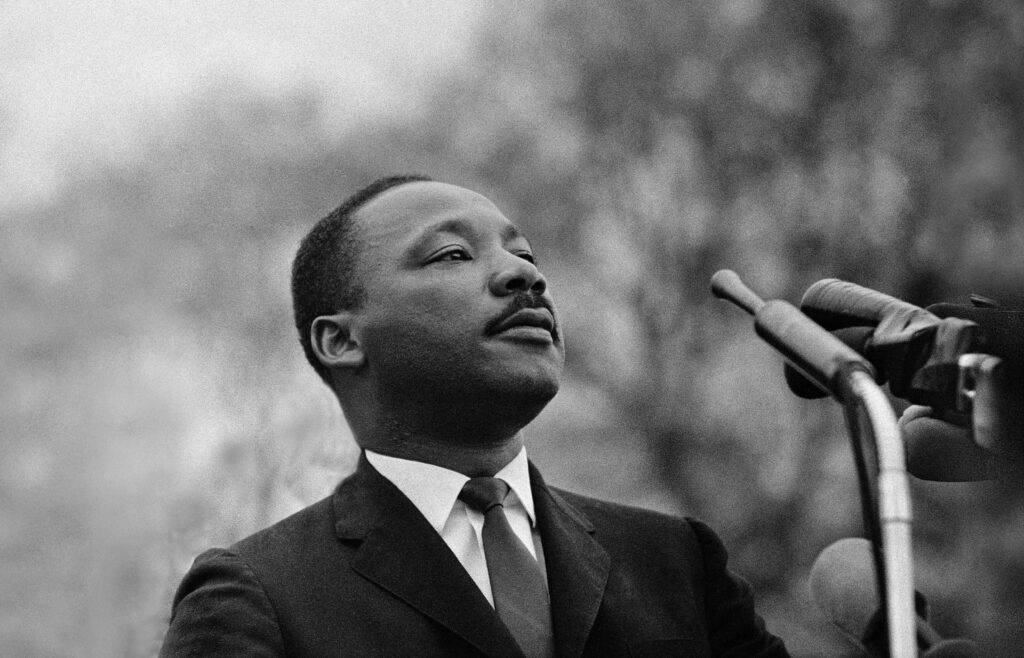We all know the social activist and Baptist minister Martin Luther King to be one of the key players in the American civil rights movement during the mid-50s. He was even awarded the Nobel Peace Prize for his efforts in fighting for justice through peaceful protests. But did you know about the man who was convicted for his assassination?
Martin Luther King’s family did not think James Earl Ray was responsible for his untimely death. In fact, Dexter King, the son of MLK, publicly supported Ray’s efforts for a retrial. The family believed the US Government conspired to assassinate MLK.
Who is Martin Luther King?
Martin Luther King Jr. was born in Atlanta, Georgia, on January 15, 1929. He received a doctorate in theology in 1955 and helped organize the very first American African civil rights movement known as the Montgomery Bus Boycott. Mohandas Gandhi greatly influenced King, and he advocated civil disobedience and non-violent resistance to the segregation laws in the South.
But even with the peaceful protests, they were often greeted with violence. But King and his followers carried on, and the movement gained popularity throughout the United States.
King reached out to the Christian and American ideals, and he successfully won the support of the federal government and the Northern whites. By 1963, Bayard Rustin and Philip Randolph led the massive Washington March for jobs and freedom. At the end of the event, was when King gave his famous I Have a Dream speech. During this time, there were 250,000 people gathered outside the Lincoln Memorial. (Source: History)
What Happened During the Montgomery Bus Boycott?
Martin Luther King and his family lived in Montgomery, Alabama, for less than a year when the city became highly segregated. It eventually became the epicenter of the struggle for civil rights after the Brown v. Board of Education decision was made in 1954.
Rosa Parks, the secretary of the National Association for the Advancement of Colored People (NAACP), was arrested on December 1, 1955, after she refused to give up her seat for a white passenger on a Montgomery bus. The people coordinated a bus boycott that lasted for 381 days. The group then chose Martin Luther King to be their spokesperson.
The Montgomery Bus Boycott indeed influenced the economy of the city. The strain on the public transit system affected businesses downtown.
When the Supreme Court ruled in their favor, saying that segregated seating on public transport was unconstitutional, King was already in the national spotlight as the face of organized non-violent resistance. (Source: History)
The Assassination of Martin Luther King
Due to his rise in popularity, King became a target for white supremacists, and there were several attempts in his life.
In January 1956, the King home was bombed by a white supremacist while speaking before a mass meeting at the First Baptist Church. Luckily, no one at home got hurt. King pleaded for peace as a large crowd of supporters gathered outside his house. The city’s commission promised protection for King and his family and offered a $500 reward for capturing the person behind the bombing.
On September 20, 1958, while King was at a department store signing books, Izola Ware Curry approached him and confirmed his identity. Upon responding, Curry preceded to stab him in the chest. Fortunately, he survived the attack and did not give up on his dedication to non-violence.
The experience of these last few days has deepened my faith in the relevance of the spirit of nonviolence, if necessary social change is peacefully to take place.
Martin Luther King
On April 4, 1968, Martin Luther King was assassinated while standing on the balcony of a motel in Memphis. James Earl Ray pleaded guilty to the murder and was sentenced to 99 years in prison. He, later on, recanted his confession and the King family believed him. Dexter King publicly supported Ray’s retrials. (Source: History)
